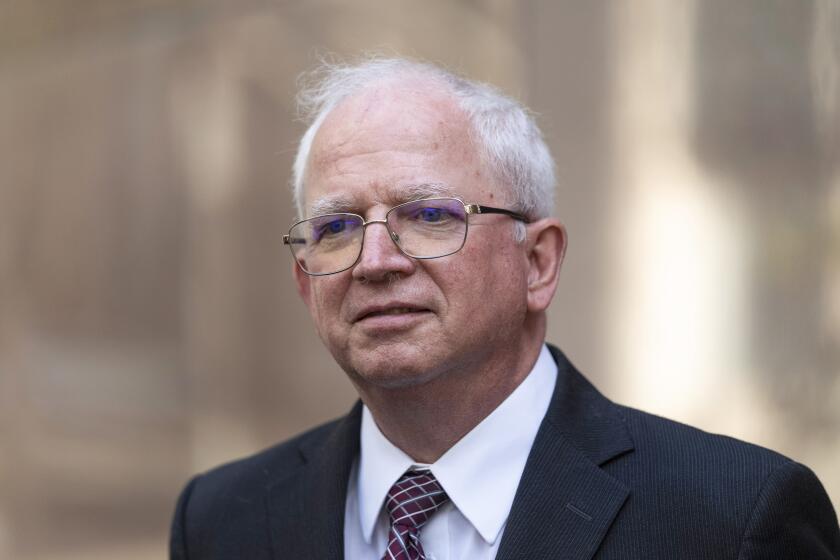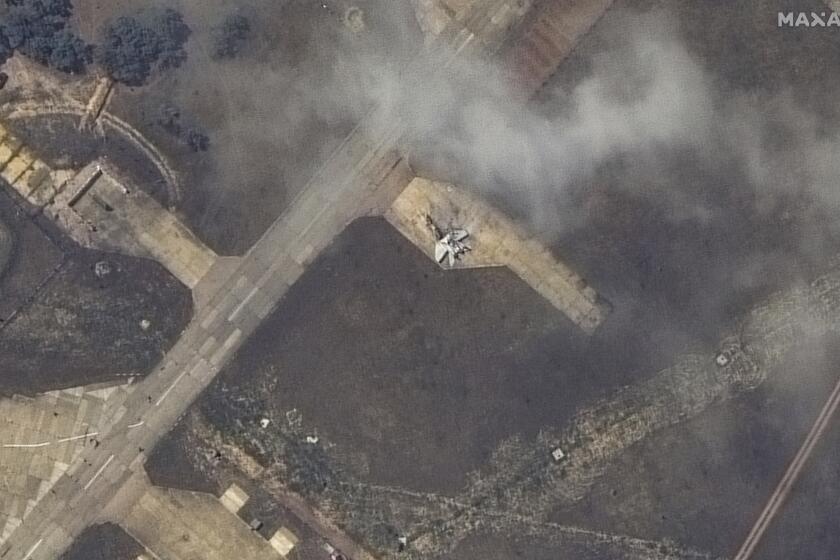Don’t Look for Vietnam in ‘Plan Colombia’
The memory of Vietnam combined with the fear of an American military intervention in the Colombian jungles has prompted heated debates in Washington and Bogota about the $1.3 billion in U.S. aid over the next two years.
At the heart of the debates lie inexact parallels and unfounded fears. To begin with, the conflict in Colombia has nothing to do with a national liberation war, as it did in Vietnam. Neither does the civilian population support the armed groups that promote violence in Colombia. On the contrary, as all polls and surveys indicate, more than 90% of the population is emphatically against the guerrilla soldiers and the paramilitary groups. So in that sense, Colombia is not involved in a “civil war” as the American media would have us believe. It is, however, involved in a confrontation between left- and right-wing powerfully armed groups.
The civilian population, which chooses to not choose a political party, has found itself trapped in the line of fire. It’s true that the confrontation keeps escalating at an alarming rate. Every three hours there is a new, high-profile kidnapping; 10 people die on a daily basis as a direct result of this confrontation. Electric towers and aqueducts are bombed on a weekly basis.
It is also true that this problem now affects all social classes and has created a huge internal destabilization, which is beginning to threaten bordering countries.
In the face of this predicament, the democratically elected government of Andres Pastrana now has the tough task of reestablishing order in the country. Critics of “Plan Colombia” do not seem to consider the government’s legitimate right to defend itself and to respond to the challenge presented by private Marxist and right-wing armies financed with drug money.
I believe the U.S. strategy to combat drugs is wrong-headed and inefficient. Alternate legalization and decriminalization tactics should be considered because the “war against drugs” strategies have failed miserably.
It should be clearly understood that drug trafficking is at the forefront of all of Colombia’s armed conflicts. Drug economics know no ideology. Drug trafficking needs destabilization and chaos to operate. For this reason, it is necessary to break the spine of the drug bank for the illegitimate armed enterprises before it breaks Colombia. This is the only route that could lead to a peace agreement.
Now, that’s all well and good, but we must know that the anti-drug movement cannot work exclusively through repressive military means. We need to remember the social and economic roots of the problem, the economics of the illegal trade and the fact that the cultivation of coca and poppy leaf provides a living for thousands of farm families. This is why the social and economic component of Plan Colombia is just as important as the military component.
Without alternate development strategies for the people, the war will never be won. You can’t take away the means of subsistence for the people without offering them a resource to survive. To do otherwise would put the people at odds with the state and the army and push them to seek refuge with the drug dealers or the guerrillas.
It is imperative that Presidents Bush and Pastrana not see this as a “war against drugs” but rather as an integrated and balanced strategy for peace. There should be an emphasis on hand-to-hand plant eradication and not aerial fumigation. The two presidents should seek a new, more regional approach to solve the drug problem in Colombia, and it should involve the bordering countries. Let’s not rake Colombia’s trash over to the neighbor’s yard.
The overall objective of Plan Colombia is to strengthen democratic institutions in Colombia whose weakening would facilitate the action of drug dealers, guerrillas and paramilitary groups. This means not only improving methods of security and intelligence but also making the judicial system more robust, eliminating political corruption and modernizing the country’s legitimate armed forces, which need to be re-educated in the essentials of human rights.
This will allow the Colombian economy to begin to recuperate. There will be no Plan Colombia possible, or a possible peace, in a ruined economy with 20% unemployment. If the U.S. Congress is serious about wanting to prevent the collapse of democracy in Colombia, it must approve preferential tariffs and trade agreements. Additionally, whatever victory Colombia can attain from Plan Colombia will surely be temporary unless the U.S. can curtail the demand for drugs in its own country. It would also put the U.S. more in tune with the ideology that it espouses.
Colombia has sacrificed its greatest people--judges, police officials, journalists, politicians--all in the name of the “war on drugs.” The U.S. can’t pretend that this is solely a problem that Colombia must solve on its own.
There is a double standard here--like when former President Clinton pardoned major drug offenders at the end of his term--that can no longer be tolerated. The message sent is so demoralizing, is it any wonder that everyone wants to throw in the towel?
More to Read
Start your day right
Sign up for Essential California for news, features and recommendations from the L.A. Times and beyond in your inbox six days a week.
You may occasionally receive promotional content from the Los Angeles Times.






